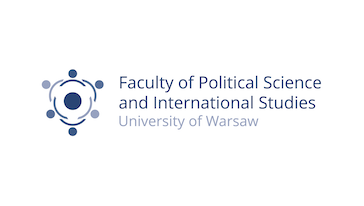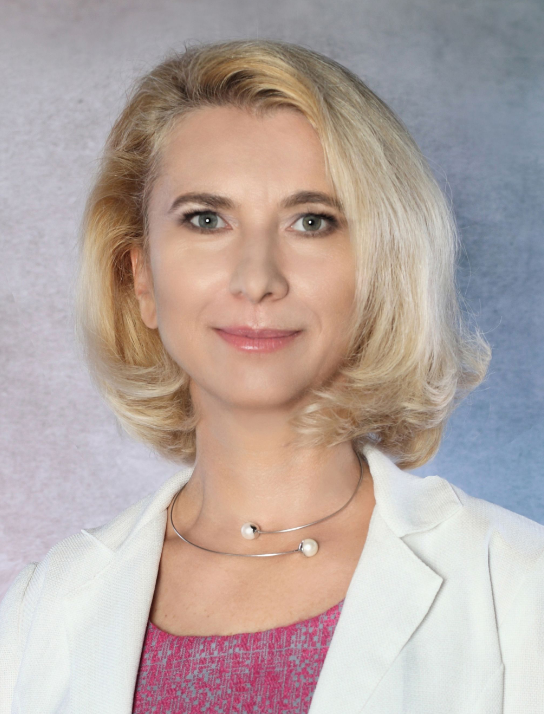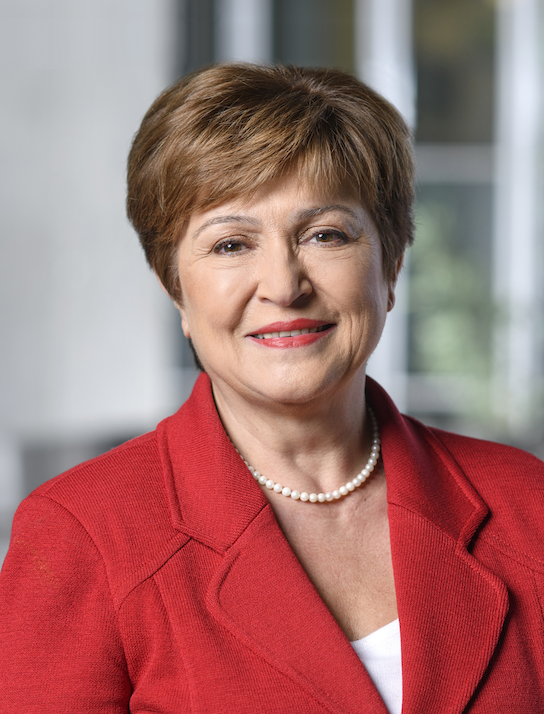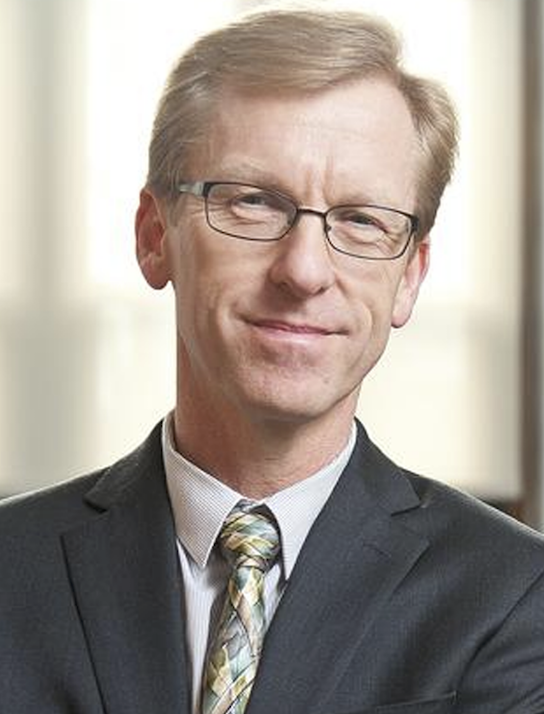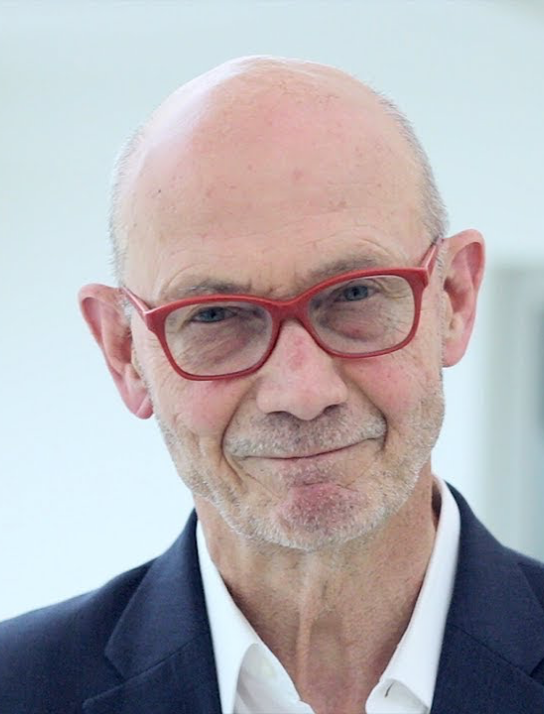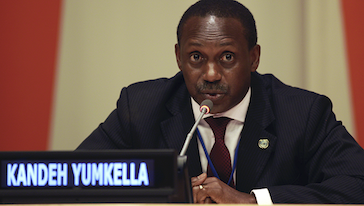The Kapuscinski Development Lecture was opened by dr. Anna Wróbel from the Department of Regional and Global Studies (Faculty of Political Science and International Studies, University of Warsaw) who welcomed the distinguished guest, Professor Francis Fukuyama.
Next, Professor Daniel Przastek, Dean of the Faculty of Political Science and International Studies, University of Warsaw, welcomed the guest, and expressed hope to be able to welcome Professor Fukuyama for a real life event at the University of Warsaw in the future.
Then the floor went to Martin Seychel, Deputy Director-General, EC International Cooperation and Development, who delivered opening remarks on behalf of the European Commission.
Final speaker at the introductory part of the lecture was Ivan Zverzhanovski, UNDP Regional Partnerships Advisor to welcome Professor Fukuyama on behalf of the UNDP.
Professor Fukuyama started his lecture on “Economic and Political Development: The Importance of Institutions” by pointing out that in the study of development economics, there was a period when the role of institutions was largely omitted, and it was only since the 1980s, that development economists have begun to recognize the importance of institutions. According to Professor Fukuyama it was inter alia because of the work of economists like Douglass C. North.
Yet initially inclusion of institutions into the study of development was limited, and narrowed the focus mostly to contract enforcement and property rights. Speaking of this Professor Fukuyama indicated that it is not certain whether western-style property rights were applicable globally. He stressed that there were many other institutions outside of property rights that were needed to achieve development, transparency, democratic accountability and modern state capacities. Yet it was only by the early 2000s that the institutional agenda in development studies broadened to include “good governance and anti-corruption,” but policy responses to achieve the latter have yielded disappointing results. Following Professor Fukuyama, believe in the power of markets and the disparaging of the state is destructive for development and democracy. This is why the ideas of good governance and anticorruption are that important. This is also why many development institutions today are pushing for a broader governance agenda to extend the basic state-building process and initiate more pervasive anticorruption measures. Even though various successful anti-corruption measures have been put in place, we do not know if aggregate corruption has changed. It might have moved from one sector to another, from one level of hierarchy to another. But getting rid of corruption is difficult – those in power know what they are doing. One needs to have enough power to bring about this political change, because it’s so entrenched. Professor Fukuyama expressed regret that even in countries where serious reforms were undertaken, some years afterwards, one by one these have been reversed. At this point, he indicated once again how important institutions are for development, but institutions are not efficient by themselves to bring about good results. It is because political power and money following it have been able to manipulate the institutions. It is possible to use the COVID-19 pandemic to illustrate some of the points brought about in the lecture, and it is not democracy that is the most important factor here. Other important features that increase efficiency of institutions include: 1) state capacity (inclusive health services during pandemic), 2) citizens’ trust in government, and 3) bad leadership indicating those who saw the pandemic not as a threat to general health but a threat to their personal political interests. Professor Fukuyama concluded his speech by yet again emphasizing the importance of strong institutions, and the importance to have rules, and impersonal, expert-led institutions.
Next, dr. Karina Jędrzejowska from the Department of Regional and Global Studies (Faculty of Political Science and International Studies, University of Warsaw) opened the discussion, and forwarded to Professor Fukuyama selected questions asked by the audience. The first group of questions asked related to the current state and threats to democracy. Responding to that Professor Fukuyama stated that we are living in a difficult time for global democracy. But a silver lining to the current pandemic is that it is exposing bad governance. It is revealing structural inequalities and showing what reforms are needed to make institutions effective. Next questions addressed the prospects for transatlantic cooperation, and future of economic and security multilateralism. According to the speaker, in order to have strong multilateralism, a strong hegemonic power is needed. When responding to the question on the condition of the concept of developmental state, Professor Fukuyama expressed the opinion that the idea has not lost it relevance, and the lessons drawn from implementation of this development model in East Asia still matter for development worldwide. Next, there were questions about impact of cultural diversity on development. Responding to that, Professor Fukuyama said that it is possible to govern diversity successfully, but ethnic and racial diversity can make democracy more difficult. Liberal democracy exists to accommodate and govern diversity, but – unfortunately – “human beings do not need race & ethnicity to hate each other”. In the final remarks Professor Fukuyama expressed his worries regarding the concept of transhumanism, and made some recommendations to the students of international relations at the University of Warsaw. Students were reminded of the importance of studying economics in order to get a better understanding of the surrounding world.
Next, dr. Jędrzejowska thanked Professor Fukuyama for the lecture and debate. Next, she thanked the UNDP, European Commission, and the authorities of the Faculty of Political Science and International Studies, University of Warsaw, for making the event possible, as well as thanked the participants for their attendance and questions. Then the event was closed.
